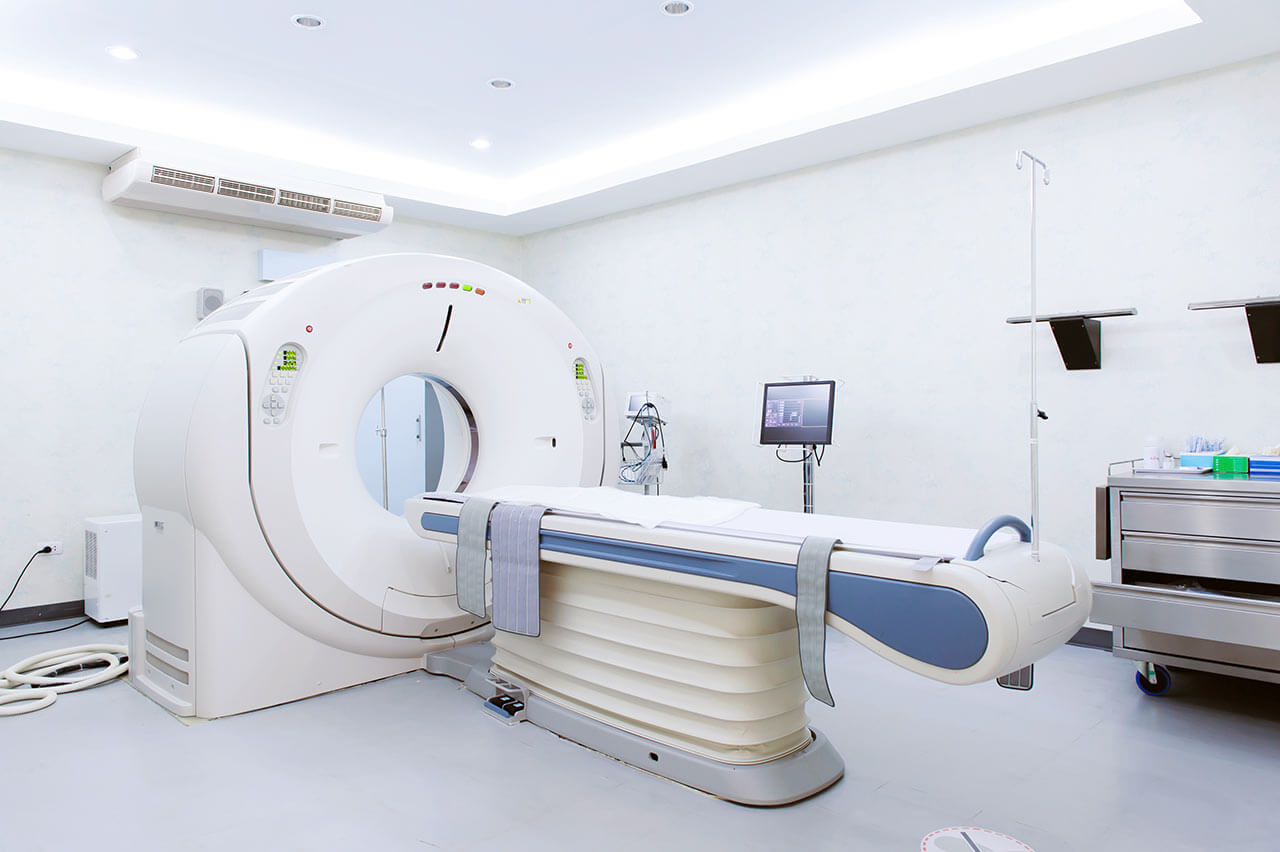
About the Department of Radiation Oncology and CyberKnife Treatment at Medicana International Istanbul Hospital
The Department of Radiation Oncology and CyberKnife Treatment at the Medicana International Istanbul Hospital offers all types of modern radiation therapy and state-of-the-art CyberKnife method against cancer. The department's specialists have excellent skills in performing intensity-modulated radiation therapy, intraoperative radiation therapy, new generation radiation therapy (VERSA HD), as well as practice the CyberKnife therapy, brachytherapy and other innovative treatments. For these purposes, the department is equipped with the cutting-edge medical equipment, for example, low- and high-energy LINAC linear accelerators, brachytherapy systems, etc. The department is headed by Prof. Dr. med. Füsun Tokatlı.
The service range of the department includes:
- CyberKnife treatment (stereotactic radiosurgery). This treatment method is the most effective for brain and spinal tumors (in primary and metastatic tumors), but it also gives positive results in the treatment of tumors of the liver, adrenal glands, prostate, lung and other organs. The CyberKnife system uses the high-tech imaging techniques and software. This allows the doctor to adjust the power and bring the radiation beams to the target sites very accurately, while monitoring the tumor movement and the patient's body. When CyberKnife is used, the incisions and anesthesia are not made, therefore this type of treatment has a minimal risk profile. The treatment is provided on an outpatient basis and allows the patient to return to his normal life as soon as possible.
- Brachytherapy (internal radiation therapy). This method of radiation therapy implies the temporary or permanent placement of radioactive materials inside the patient's body (in the tumor or near it) to reduce the volume or completely destroy cancer cells. The essence of therapy lies in the fact that the ionizing radiation from radioactive materials destroys the cancer cell DNA, disrupting their ability to divide. In this case, the cells die and the tumor regresses. Brachytherapy is widely used to treat tumors of the cervix, uterus, prostate, vagina, esophagus, rectum, tongue, and other organs.
- Intensity-modulated radiotherapy (IMRT). This is a modern innovative method of radiation therapy, the essence of which lies in the fact that the radiation is modulated in intensity, depending on the results of previously performed CT. The method allows the doctor to accurately determine the dose of radiationб which is directed to a particular area of the tumor. The tumor is irradiated at different angles, which minimizes the dose of radiation affecting the healthy tissue. This type of therapy is an excellent option for tumors of the bone tissue, brain and spinal cord, mammary gland, female genital organs, prostate, gastrointestinal tract, lungs, etc.
- Intraoperative radiation therapy. This treatment method is based on supplying a single high dose of ionizing radiation with the help of an electron beam from the high-energy accelerators directly during the surgery. The depth of penetration of radiation into the thickness of tissue can vary from a few millimeters to four centimeters, depending on the specific situation. In some cases, intraoperative radiotherapy can completely replace postoperative radiotherapy or significantly reduce its duration. This type of radiation therapy is the most effective against the tumors localized in the breast, lungs, pelvic organs, abdominal cavity, limbs, as well as in the cranial cavity.
- 3D conformal radiation therapy. This irradiation method is based on the volume planning technology. In other words, the shape of the irradiated tissue volume is as close as possible to the shape of the tumor. The procedure is performed using modern linear accelerators.
- Other treatment methods
Curriculum vitae
Education and Professional Experience
- 1985 Cerrahpaşa School of Medicine, Istanbul University.
- 1991 Postgraduate Education, Residency, Department of Radiation Oncology, Cerrahpaşa School of Medicine, Istanbul University.
- 1992 - 1993 Guy’s Hospital, London, Department of Radiation Therapy (under the direction of Dr. Adrian Timothy and Dr. Jane Dobbs).
- 2006 Department of Radiation Oncology, School of Medicine, Trakya University.
- Since 2008, Head of the Department of Radiation Oncology and CyberKnife Treatment, Medicana International Istanbul Hospital.
Areas of Specialization
- Breast and gynecologic cancers.
- Intensity-modulated radiotherapy (IMRT).
- Brachytherapy.
Memberships
- Turkish Society of Radiation Oncology.
- European Society for Radiotherapy and Oncology (ESTRO).
- American Society for Radiation Oncology (ASTRO).
Photo of the doctor: (c) Medicana Health Group





